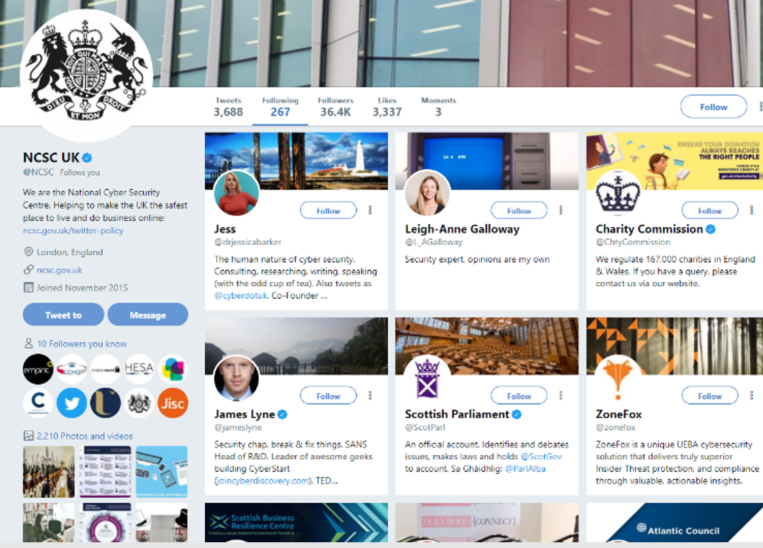It's important to build and nurture relationships with the right people. Using the search bar on Twitter, if you input your research area you will find a list of individuals and organisations associated with that keyword search.
In the screenshot below, we have searched for cyber security to find the National Cyber Security Centre page. By clicking on the 'Following' tab on their profile we can see who they are following. Here you can pick and choose who you want to follow from this list and engage with or ‘professionally stalk’ by replying to their tweets, retweeting and investing time in those that repay the favour.
